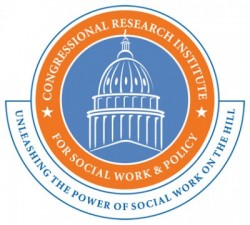There were a few troubling findings in the survey of the nation’s millennial population recently released by the Institute on Politics (IOP) at Harvard University’s John F. Kennedy School. C-SPAN’s Washington Journal’s Monday morning segment focused on the fact that half of the 1,665 millennial respondents believe that the American dream is dead for them. Of course interpreting that finding would depend on how these young Americans define the American Dream. Typically one sees the American dream as having the opportunity to achieve a satisfying life if you are willing to work hard and play by the rules. The institute’s polling director John Della Volpe was on hand to provide flesh to bone from information not in the survey results that was gleaned from focus groups. He says the American Dream is no longer the big house, fancy car and many kids, but a more modest dream of being able to do what you want in life and doing as well or better than your parents.
He talked about the stress in the heads of these young Americans and that much of that stress was due to anxieties about finding adequate employment when completing school and finding themselves burdened with thousands of dollars in student debt. For many, finding a decent job is not easy. While the nation’s overall unemployment rate hovers around a respectable 5.4 percent, the unemployment rate for millennials is significantly higher at about 8 percent. If you count the 1.8 million millennial-aged workers who have quit looking for work, the effective unemployment rate would be 13.1 percent. Life is particularly difficult for millennials with less than a college education. Fifty-eight percent of millennial college graduates believe the American Dream is still alive while just 42 percent not in college believe the American Dream is alive for them.
 Another worrisome statistic was the near 80 percent who say they and their friends are not politically engaged or politically active. Only 17 percent believe the country is headed in the right direction, yet millennials are willing to sit on the sideline rather than get involved in politics. Fifty-seven percent said they voted in the last presidential. About two-thirds who identify with a political party plan to vote in their presidential primary. Only a third of independents—who outnumber both political groups combined—plan to vote in the presidential primaries. These statistics suggest that large swaths of millennials have lost faith in the political process. Although 50 percent approve of the job President Obama is doing, just 39 percent approve of the work of Democrats in Congress and a mere 19 percent approve of the work of Congressional Republicans.
Another worrisome statistic was the near 80 percent who say they and their friends are not politically engaged or politically active. Only 17 percent believe the country is headed in the right direction, yet millennials are willing to sit on the sideline rather than get involved in politics. Fifty-seven percent said they voted in the last presidential. About two-thirds who identify with a political party plan to vote in their presidential primary. Only a third of independents—who outnumber both political groups combined—plan to vote in the presidential primaries. These statistics suggest that large swaths of millennials have lost faith in the political process. Although 50 percent approve of the job President Obama is doing, just 39 percent approve of the work of Democrats in Congress and a mere 19 percent approve of the work of Congressional Republicans.
Yet they do not see themselves as viable change agents. Few plan to donate to any campaign, few plan to attend campaign rallies and few plan to volunteer on a campaign. Half believe that government is the problem and only 17 percent would consider working in government. Many millennials believe change is better made through community service. While 44 percent are unsure about what to do, 32 percent believe the country’s problems are best solved through community service and just 21 percent believe change can be made through political engagement. Millennials have grown up in a conservative climate that says government is the problem and they have watched as gridlock in Congress has rendered it more or less ineffective.
Based on what we have seen in the past, Republicans are likely to be content with millions of young Americans sitting on the sidelines in 2016 when the country votes for the next President, the entire House of Representatives, and 34 United States Senators. Millennials lean heavily towards Democrats. Fifty-six percent want to see a Democrat in the White House. Most of those would like Bernie Sanders to be our next President. Regardless, voting matters and life will not change much for millennials if they refuse to get in the game. There are millennial social workers organized under the banner of YSocialWork who believe nonvoters like many millennials can make a difference. Perhaps they can convince more of their sisters and brothers to move from the sidelines into the game.
The post Can Millennials Regain Faith in Government? appeared first on Congressional Research Institute for Social Work and Policy.
Written By Charles E. Lewis Jr., Ph.D
Can Millennials Regain Faith in Government? was originally published @ Congressional Research Institute for Social Work and Policy » Charles Lewis and has been syndicated with permission.
Our authors want to hear from you! Click to leave a comment
Related Posts






